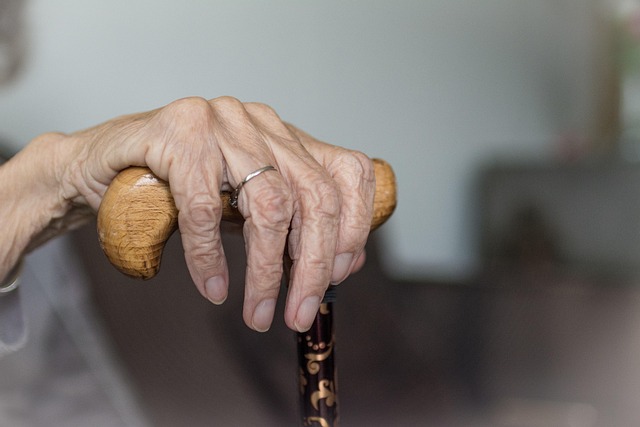Elderly Companion Services are vital for seniors with dementia, offering personalized support to maintain dignity, independence, and quality of life. These services provide daily assistance, mental stimulation, and emotional companionship, combating loneliness and isolation. By connecting elders with local resources like adult day care and memory care facilities, companions ease caregiver burden and improve overall well-being, ensuring seniors receive tailored care and families find peace of mind.
Dementia, a complex and progressive condition, significantly impacts elderly individuals, affecting their memory, cognition, and daily lives. This article explores comprehensive support strategies for managing dementia. We delve into the critical role of elderly companion services, which provide vital assistance to those living with dementia, enhancing their quality of life. Additionally, we guide readers on accessing local resources, offering insights into available services and steps to create a holistic care plan. Understanding these supports is essential for fostering better outcomes for those affected by this enigmatic condition.
- Understanding Dementia and Its Impact on Elderly Individuals
- The Role of Elderly Companion Services in Supporting Those with Dementia
- Accessing and Utilizing Local Resources for Comprehensive Dementia Care
Understanding Dementia and Its Impact on Elderly Individuals

Dementia is a complex and progressive neurological disorder that primarily affects older adults, causing a decline in memory, thinking skills, and the ability to perform everyday tasks. As the population ages, the impact of dementia on elderly individuals has become an increasingly significant concern. Those living with dementia often face challenges in communication, navigation, and maintaining their independence. The symptoms can be devastating, leading to social withdrawal and a diminished quality of life.
Elderly companion services play a vital role in supporting those diagnosed with dementia. These services provide much-needed assistance, ensuring the well-being and safety of the elderly. Companion caregivers offer a range of support, including helping with daily tasks, providing mental stimulation through engaging activities, and offering emotional companionship to mitigate the effects of loneliness and isolation. With dedicated care, elderly individuals with dementia can maintain their dignity, independence, and a sense of normalcy for as long as possible.
The Role of Elderly Companion Services in Supporting Those with Dementia

Elderly Companion Services play a vital role in supporting individuals living with dementia, offering a unique and personalized approach to care. These services provide companionship and assistance tailored to the specific needs and preferences of those affected by the condition. Companions offer routine conversation, engage in meaningful activities, and assist with daily tasks, ensuring clients feel supported and valued.
Through these interactions, Elderly Companion Services foster a sense of purpose, improve cognitive function, and enhance overall well-being. Companions can also act as advocates, helping clients navigate healthcare systems and providing emotional support during challenging times. This holistic approach to dementia care not only improves quality of life but also allows families to have peace of mind, knowing their loved ones are being cared for in a compassionate and specialized manner.
Accessing and Utilizing Local Resources for Comprehensive Dementia Care

Accessing local resources is a vital step in ensuring comprehensive dementia care for elderly individuals. Many communities offer a range of services specifically tailored to meet the unique needs of those with dementia and their families. These can include adult day care centers, memory care facilities, support groups, and home healthcare services. Elderly companion services play a crucial role here by assisting seniors in navigating these resources, offering companionship during transitions, and providing much-needed support at home.
Utilizing these local resources not only eases the burden on caregivers but also enhances the quality of life for individuals with dementia. From social activities that foster engagement to specialized medical care, these services create a network of support that can significantly improve daily functioning and overall well-being. Companions can help connect families to these essential services, ensuring their loved ones receive the comprehensive care they deserve.
Dementia care is a multifaceted challenge, but with the right support, quality of life can be significantly enhanced. By combining understanding and empathy, Elderly Companion Services play a pivotal role in navigating this complex landscape. Accessing local resources and utilizing comprehensive care options ensures individuals affected by dementia receive holistic attention tailored to their unique needs. Through these services, we can foster a supportive environment, enabling those with dementia to live with dignity and respect.














